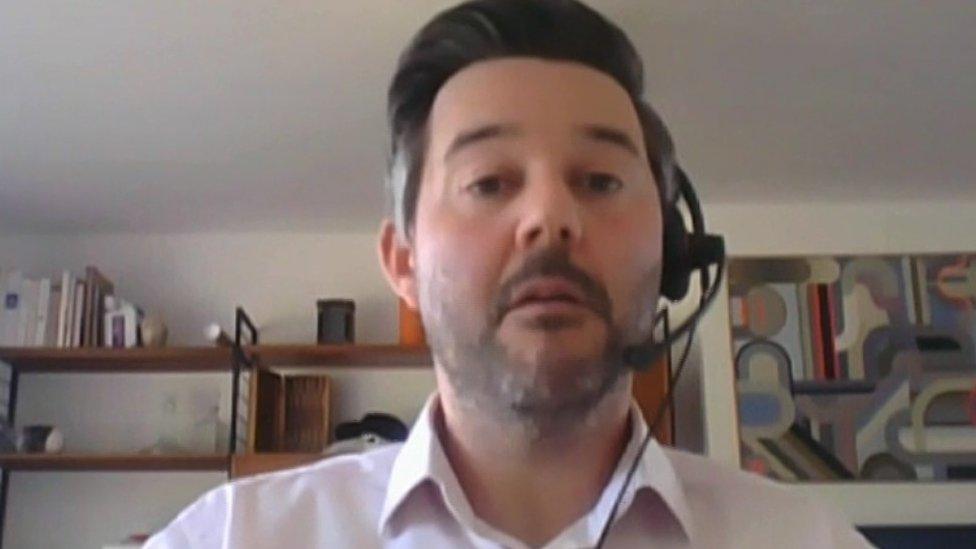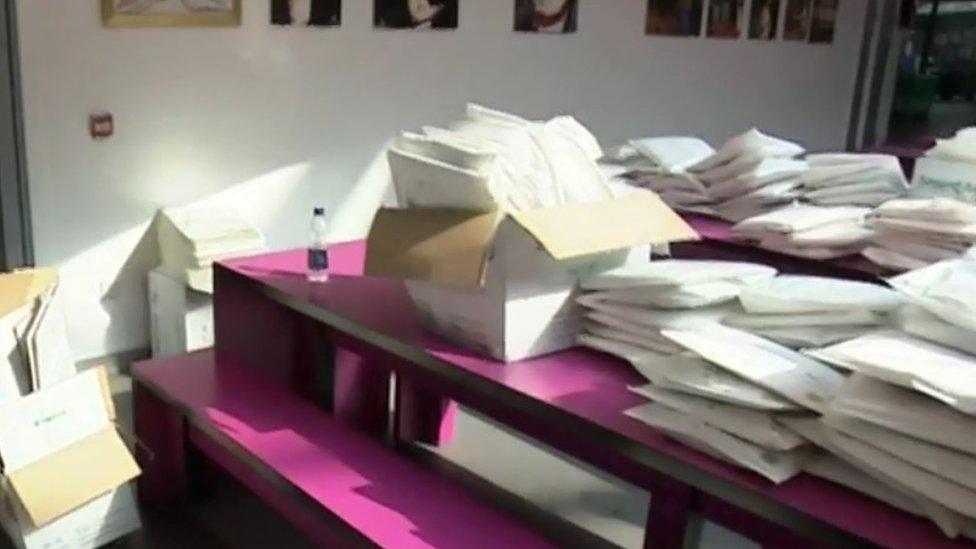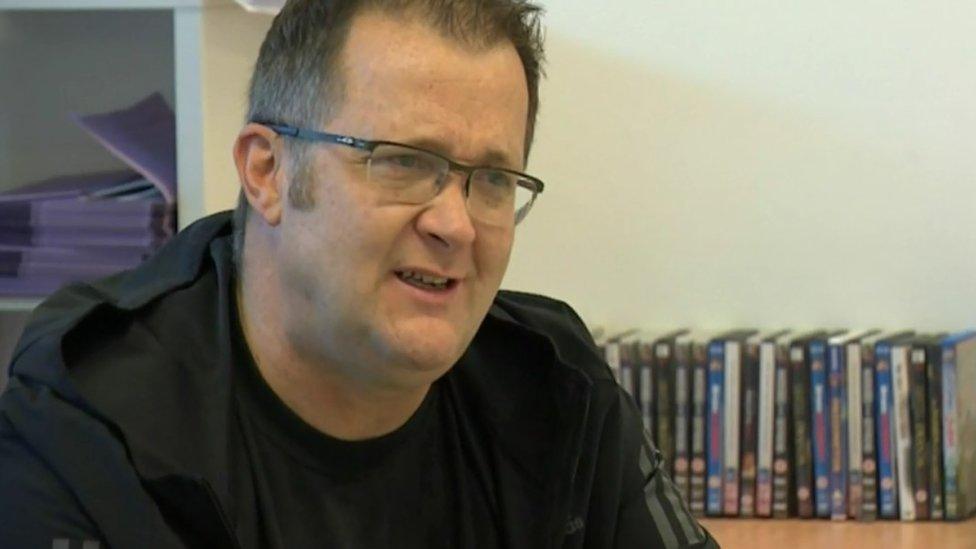Coronavirus: Fears for disadvantaged pupils during lockdown
- Published

Oliver Burwood is chief executive of a trust which runs 34 schools across Norfolk
A schools leader has raised concerns that disadvantaged pupils are missing out on teaching during the lockdown.
Under coronavirus restrictions, schools have been closed to all but the children of key workers and children officially recognised as vulnerable.
The chief executive of one academies trust said the number of disadvantaged pupils attending its schools was down.
The Department for Education said it was working "to make sure the most vulnerable children are in school".
Oliver Burwood runs the Norwich Education and Academies Trust, which has 34 schools across Norfolk.

Homework packs being organised at Passmores Academy in Harlow
He said he understood the need for restrictions but was concerned many disadvantaged children were missing school.
"What we find for those children is that being in school itself is a protective factor," he said.
"But we are not in a normal situation at the moment so the tools we can use, to encourage children or in some cases require those children to be there, are more limited.
"That's having an impact not only for us but nationally. Numbers are down and it's a real concern for us."

Vic Goddard, principal of Passmores Academy in Harlow, said the school was facing "challenging" times
Vic Goddard, the principal of Passmores Academy in Harlow, which has a higher than average proportion of disadvantaged pupils, said the situation was "challenging" and the "thought of it just being about work to send home is just not the reality".
Harlow's Conservative MP Robert Halfon has called on businesses to donate laptops and is asking the government for extra funding and volunteers to help with tuition.
"The NHS must come first in priority and the care homes. But schools have to be part of the hierarchy. We cannot leave 'left behind pupils' left further behind," he said.
A Department for Education spokesman said: "We are working with social workers and other safeguarding professionals to make sure the most vulnerable children are in school... and we're partnering with software providers to support schools with the technology they need to reach pupils at home."